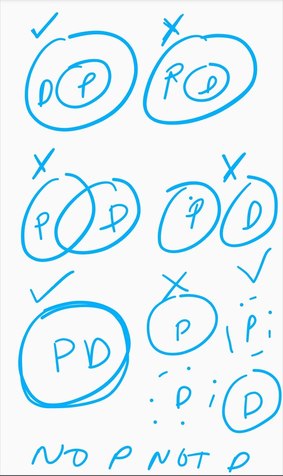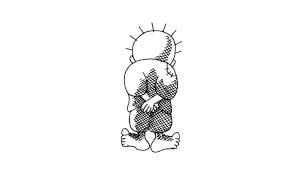-
Centrist and Small Government debate
You weren't censored, you were caught in the spam filter. Either that or big government did it. -
Should hate speech be allowed ?@Hanover
Clearly, Hitler did nothing wrong. It was all just talk. The world we need is one where psychopaths and killers rather than have to do their dirty work themselves should be given free rein to threaten, coerce, and bribe others into doing it for them. That way, though we'll have much more death and destruction around, at least we can rest assured that we'll have absolutely free speech. Because in the end that's what's really important. -
Volcanic Soils (rants on systems ontology)...schizoid scientific philosophy... — fdrake
So, very soon this will morph into "volcano souls" and we'll be talking Xenu and hydrogen bombs. *Grabs popcorn*. -
Is the US Senate an inherently unrepresentative institution?U.S. comes in at seventh on this list.
http://www.oldest.org/politics/democracies/
Not all continuous though. -
The American Gun Control Debate
Your politicians are not going to kill you. That would deprive them of the opportunity to continue to make fools of you. In any case, this hysterical fear is probably best dealt with by mental health professionals. No-one here is going to be able to help you. -
Volcanic Soils (rants on systems ontology)I should notify Baden, fdrake has finally snapped — T Clark
I just presumed it was me who had gone nuts. :grin: -
Boris Johnson (All General Boris Conversations Here)
What's interesting about Boris is how apparently hard it is for him to even pretend he gives a shit about anything. He delivers every policy line as if he's about to burst out in derisive laughter at the end of it. He's a conscious self-reflexive parody of himself. This goes beyond Trump who at least usually has the decency to look like he's actually crazy, and—crucially—enough so to believe his hardcore supporters aren't. What's perpetually scribbled across Boris's mop-topped mug, on the other hand, is an unconcealed impish amusement at the level of idiocy of those who catapulted him to the position of PM (with the deliciously ironic supplementary self-designation of "Minister of the Union" hammering home their folly). To say he's a buffoon is almost to miss the mark. He's a buffoon bathing in the confident assurance that the buffoonery of the system, the media, and the plebs that prop up his ridiculous, bloated frame infinitely out-buffoons him. -
BanningsBanned (after a few checks) @Elise for sending this PM.
"Hi, how are you? I'm Elise, from Germany, please, I would be happy to establish good relations with you, also i have something important to discuss with you. Please I want you to contact me directly on my personal email today.. ok:: mariamarkleathotmaildotcom"
I presume I'm not the only one who received this. Please report this kind of stuff. Cheers. -
Donald Trump (All General Trump Conversations Here)
Trump attacks Sharpton. Is it just a coincidence that he has attacked yet another minority? To see this as just examples of Trump's racism misses the point. — Fooloso4
The Dems have yet to understand the nature of Trump's offensive tactics. Perhaps they need an instructional video:
-
Donald Trump (All General Trump Conversations Here)The Zoolander-in-chief is now on Twitter celebrating a break-in at Elijah Cummings' residence. Democrat = Bad. Criminal hurt Democrat = Good. So, Criminal = Good. :party:

-
Are you a genius? Try solving this difficult Logic / Critical Reasoning problemOn consistency, a couple of visuals:


The first pic, the statement. The second, the negated consistencies with A-D.
[Edit: Fixed visual typo]
[Edit 2: Fixed as per @bongo fury] -
Equanimity, as true happiness.What's your personal pick here? — Wallows
I don't have a personal pick. Maybe it's just that I've come to see 'happiness' as not a particularly interesting or even coherently definable goal and have more or less dropped the concept in favour of getting on with doing the things I want to do and being grateful for having the energy and opportunity to do so (which a basic state of equanimity or stability allows for*). And when you're not self-reflecting, whether you're 'happy' or not is not an issue anyhow. You just need to make the space to not have to and that may require some initial sacrifices. Generally not of anything really valuable though.
And what did you mean by the "usual suspects"? — Wallows
The usual suspects = the media, politicians, marketers etc. Purveyors of the idea that consumption of whatever commodity, material or ideological, can be an end in itself rather than a route to more of the same.
*And what allows for that is security, sustenance, and sociality. Which should be not a huge ask for most of us in the privileged West. -
Equanimity, as true happiness.
Equanimity is a sensible goal considering the brain's chemical arsenal is not well enough equipped to produce a very sustained experience of happiness; or to put it another way, our capacity for feeling good is biologically limited and only becomes more limited with direct pursuit thereof. Besides which, the idea that we're supposed to be happy (as if it's a natural or default state) is a dangerous misconception that a cursory study of evolutionary theory should disabuse us of, making being unhappy about not being happy, or seeing such as some kind of a deficiency, doubly dangerous (particularly in terms of that stance's manipulability by the usual suspects). So, there's an ideological basis for the confusion surrounding happiness that serves a certain system and certain interests and if Confucianism or whatever religious or philosophical basis can be used to self-immunize in that respect, I'd say go for it. -
Verbal acuity in men vs. women
Nothing of scientific value. But you might be able to infer something from this:
https://www.ncbi.nlm.nih.gov/pubmed/28365902
i.e. A slight potential advantage in verbal fluency among women over men worthy of further study. -
Boris Johnson (All General Boris Conversations Here)That's not true. He's a democratic socialist, and he has pledged to nationalise the railways and end the energy consumer rip off. He has said nothing about nationalising the banks, and you won't hear the sort of Marxist rhetoric you'd find from the Communist Party of Great Britain from the mouth of Jeremy Corbyn. The Labour party is not a Marxist party, Militant members were expelled, and they removed clause four many years ago. — S
But here's a certified true picture of Karl Marx on his way to a meeting with Jeremy Corbyn to convince the Labour leader to destroy Britain's economy and personally consume every bank he can stick a pitchfork in. (Modern surgical techniques have enabled Karl to have his horns removed, but don't be fooled, it's him!)

-
I'm Not Happy and I'm Not Sad.@Wallows You've been asked not to post this kind of personal stuff in the philosophy sections umpteen times. If you try to log in some time and find yourself banned, it'll probably be because of something like this.
-
A Query about Noam Chomsky's Political PhilosophyThis may also help (transcript in the description).
-
A Query about Noam Chomsky's Political Philosophy
No book of his directly tackling what you're after that I know of. But there is this collection of his writings that aims to do so:
https://www.goodreads.com/book/show/12618.On_Anarchism -
Boris Johnson (All General Boris Conversations Here)This is where it's at. The most accurate analysis of Boris BS I've seen so far on the mainstream media by those whose business it is to know.
-
Boris Johnson (All General Boris Conversations Here)Surprise, surprise, Johnson is bloviating for the sole delight of the Brexit party flies so that they might perch anew on his steaming pile of horse manure. All tally-ho, once more unto the breach, unsheathe your sausage, chaps! Winston Churchill meets Sideshow Bob. Only with worse hair. Pffft.
-
What is Philosophy for you?As I upset @Pantagruel's applecart yesterday, I'll try to help right it today.
What is philosophy for you? An intellectual challenge? A vocation? A schema? A mystery? — Pantagruel
Please answer the gentleman's valid and interesting question and stop talking about me and sperm. Thank you. -
Boris Johnson (All General Boris Conversations Here)Do you think Boris will improve May or Cameron? — Bitter Crank
Perhaps. If his election prompts a suicide pact between them.
... j/k. To your question, yeah, bring back MayBot and/or greasy PR guru, big Dave. We miss your moderately less grevious sins against humanity. -
Boris Johnson (All General Boris Conversations Here)Whether it is throwing people under the bus or writing a lie on the side of one
:lol: But :cry: -
Boris Johnson (All General Boris Conversations Here)
Notice woolly phrasing of exactly zero substance. Try searching for the 'alternative arrangements' he's referencing and you'll find nought that hasn't been outright rejected by the EU and Ireland. There's more likelihood of Norwich City winning the league next season than of the backstop being dropped. (A joke in there about canaries and coal mines which I can't be bothered extracting. :D )
Tbh, I think Trump actually believes a lot of the stupid shit he comes out with whereas Johnson is purely a mop-topped heat-seeking missile for power. There is literally nothing else to him but machination.
Swinson might surprise you. She's got just the pizzazz the Lib Dems need and at just the right time. They won't win it, but they'll complicate matters and that's a huge improvement on being irrelevant. -
Boris Johnson (All General Boris Conversations Here)Can he really solve the Backstop issue in time? — S
I would say there is no "solving" the backstop issue. There is only capitulation from the UK or more pretending. For 'backstop', read 'The Good Friday Agreement'. That ain't being given up. -
Boris Johnson (All General Boris Conversations Here)
Boris will immediately shift to the left, if not in rhetoric, in practice. And he'll blame moderates for thwarting him when he fails to do what he has no intention of doing, i.e. delivering Brexit by October 31, which will give him cover against the Brexit Party for the next general election. So, interesting set-up. The good news is the last thing he really wants is a no-deal Brexit because that's all that stands in the way of his utopian lies about the economics of which being exposed as such. Added to that, kept alive as an ideal, it can remain the totem under which he continues to lullaby his Daily-Mail-chewing base to sleep. In other words, he's said exactly what you would expect a self-serving arsehole to say to win over the Conservative activists necessary to beat Hunt to the PMship. And now he will do exactly what you would expect a self-serving arsehole to do to keep himself in the PMship for as long as possible, which does not include delivering the unattainable Brexit dream but extending the false quest for it to legendary proportions.
-
Why there must be free will
What you have or haven't read isn't necessarily relevant to my original comment.
Ok. There's significant overlap with the other free will discussion anyway
Baden

Start FollowingSend a Message
- Other sites we like
- Social media
- Terms of Service
- Sign In
- Created with PlushForums
- © 2026 The Philosophy Forum



